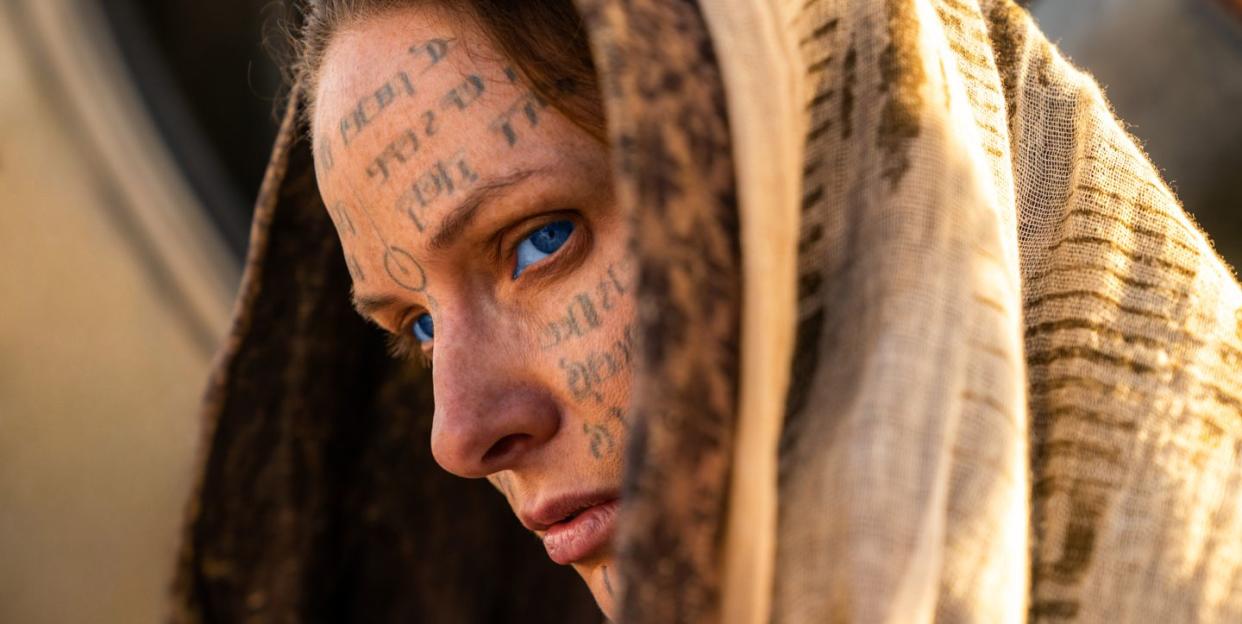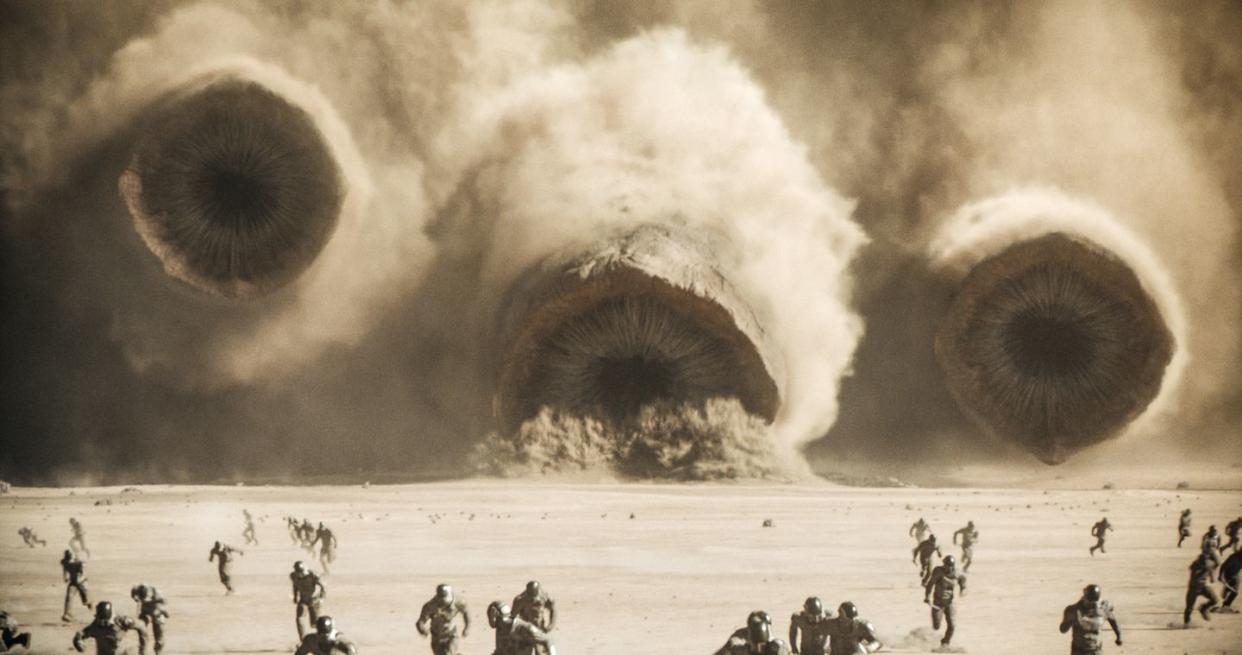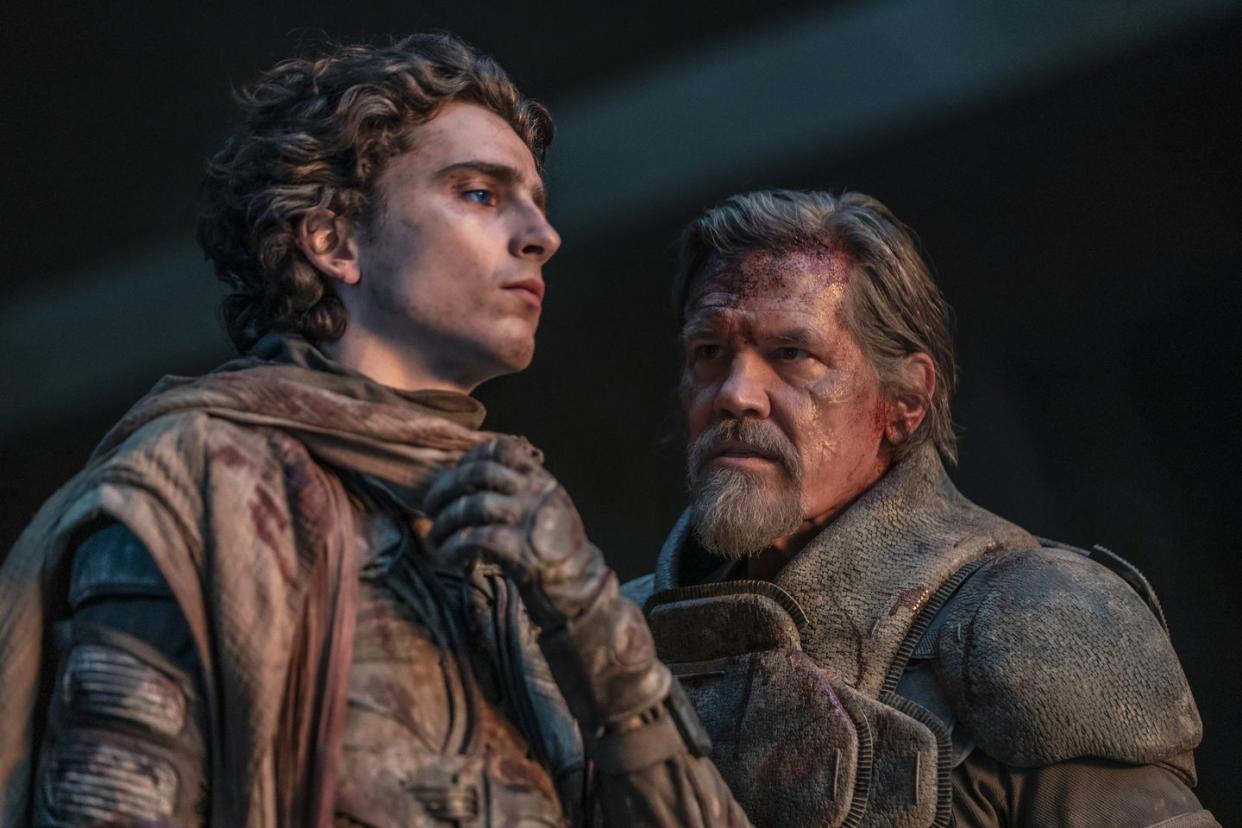Dune 2 fails to address Dune's biggest issue

Few directors have as much respect in the industry as Denis Villeneuve. His filmography makes him something of a living legend: Arrival, Sicario, Prisoners, Blade Runner 2049 and, of course, Dune – the franchise many critics consider his crowning jewel – are seminal works of our time.
An adaptation of Frank Herbert's classic series by the same name, the release of Dune: Part Two has met with the same reverence as the first movie.
It is, in some ways, understandable. Like its predecessor, the sequel is a visual feat that's rare, almost unparalleled, in an era of filmmaking where most big budget films look lifeless. Dune 2 does not have that problem; there are certain shots so perfectly put together that they should be hung in a museum.
But what it accomplishes visually is undermined viscerally by the moral hypocrisy that underlies the entire adaptation.

Every moment of visual brilliance – the introduction of Feyd-Rautha (Austin Butler) with a fight sequence shot entirely in sickly black-and-white infrared; the wide, expansive sandworm rides that hide the elegant menacing power of the Fremen; close-up shots that frame Paul's inner conflict as he's seduced by power perfectly and patiently – are all reduced to directorial grandstanding when you take into account the actual content of the movie.
We follow the Atreides as they try to rebuild after the betrayal their family faced in Dune, trapped on Arrakis as the only two surviving members of their family.
Paul (Timothée Chalamet), touted as a legendary messiah who is foretold to be the saviour of the galaxy, spends his time fighting alongside them against the menacing power of the Harkonnens. He's also trying to figure out whether his loyalties lie with his lover Chani (Zendaya), a Fremen warrior and the supposed anti-colonial core of the movie, or with his own destiny.
Take a step back for a moment from the star-studded cast and their wonderful performances and look at what they are performing in service of: a movie that is about the destruction of a MENA-coded (Middle Eastern/North African) community that has nobody from a MENA background anywhere in the main cast of actors.

A movie that features white people wearing headscarves and niqab look-a-likes, long-flowing abaya-esque clothes, speaking in Farsi and Arabic. A subjected people, they pray in sun-drenched sands, deeply devout and pious even in the face of devastation.
One of the most distressing moments in the movie is when you're forced to watch the destruction of a Fremen holy place, a locus of worship and reverence for a community with almost nothing to cling to as they are forced to lose even more than they already have.
You are left wondering how a creative team and cast that has entrenched themselves in this world can choose to be so blind to the real-life correlations. The sequel, like the first movie, was filmed in Jordan and the behind-the-scenes crew included Jordanian and Palestinian people, yet it seems no effort was made to otherwise include the very people whose culture the movie is implicitly, unavoidably based on.
The Fremen watch helpless as their sanctuaries are raided, their children killed by a colonising power who wants their land and resources for themselves. What does that remind you of? Which community has had to deal with their mosques being bombed endlessly, their children orphaned?
Which faith is famous for the fashion of their women, terrorised in Western countries for the very hijab that cast members of the cast are donning like a costume on red carpets? As Anya Taylor-Joy rocks up to a carpet clad in a makeshift jilbab, Muslim women around the world are fighting against ridicule and legislation that strips of them of the autonomy to wear their hijabs.

Parts of our identity are being co-opted by people who have never lifted a finger to defend us, and it seems very few places are giving space for the criticism of the erasure both Dune movies are dependent on. It is how cultural colonialism works: the customs of others are exoticized, made into costumes – literally, in the case of the Fremen.
Just as Paul and his mother entrench themselves with the Fremen to their advantage, here in the real world, Dune: Part Two and its creator embed themselves in a culture they have no business being in.
Resistance is romanticised in the movie, something to applaud. The creative dissonance that coats every scene is an insurmountable obstacle to overcome; you simply cannot unsee the spinelessness of the movie once you start to understand what Dune 2 is trying to accomplish.
You leave the film feeling gaslit, lied to.

The purpose of an adaptation – of a good one anyway – is to expand upon the existing material, to add more depth and nuance to it. Villeneuve does none of that, choosing instead to double down on the appropriation and orientalism present in the books and further fuel it by refusing to cast any Muslim or Arab/Middle-Eastern actors to play any of the main roles, or to invite Muslim writers to help fill the gaps found in Herbert's indelicate rip-off of Ibn Khaldun's The Muqaddimah.
Massive sections of Islamic faith and culture are copy-pasted in service to a story that makes no effort to understand us, only to aestheticise our beliefs and history – a move perfectly in line with Herbert.
Many of Villeneuve's fans insist that the point of the movies – like the supposed point of the book – is to criticise colonisers like Paul; that they are, in fact, on the Muslim communities' side. That is an argument completely disproved in this movie.
Context – social and political – matters. There is a word for white creatives who use other people's cultures as they see fit, who feel entitled to tell every story, co-opting the language and identities of others for their own gain – and that is a coloniser.
Dune is not a critique of colonialism or of the misuse of power by powerful men. It is a self-important, surface-level vanity project that presents itself as a condemnation of the very thing it is guilty of being. Villeneuve can never be convincing in his criticism of Paul Atreides because he, in many ways, is Paul Atreides.
It doesn't matter how pretty the movie is: Dune: Part Two is a wasted opportunity. Undermined by its own wilful ignorance, this is a movie to remember for all the wrong reasons.
Dune: Part Two is out now in cinemas.
You Might Also Like
